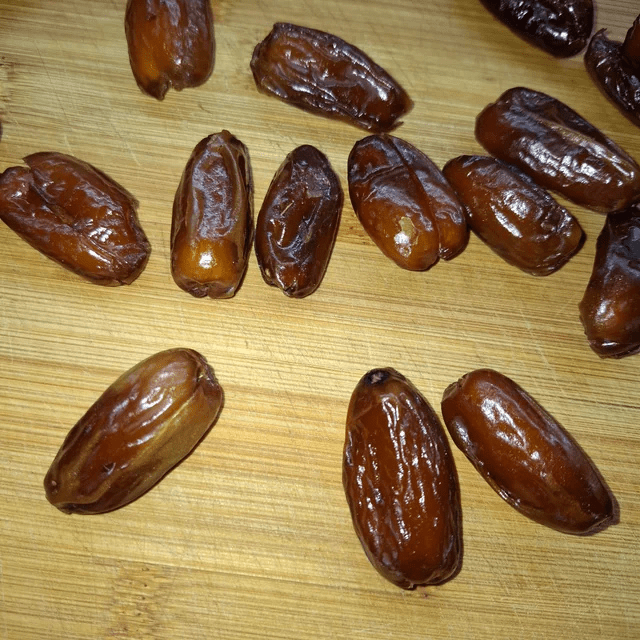"Why You Should Always Check Dates Before Eating | Doctor's Warning & Health Risks Explained"
"Dates are packed with "health" benefits—but did you know they can also hide risks? Discover why doctors advise always inspecting your dates before eating, the dangers of mold and contamination, and how to keep your snacks safe and healthy!"
Always Check Your Dates Before Eating Them; Here’s Why a Doctor Issues Warning!
Dates are more than just a natural sweetener or quick energy snack—they’re lauded worldwide for their nutrition and health benefits.
But while these little gems are packed with vitamins, minerals, and fiber, there’s one crucial piece of advice from doctors that every date lover needs to remember: Always check your dates before eating them.
Here’s why this warning isn’t just a formality, but a food safety essential that could protect your health.
Why Dates Need Closer Inspection
Dates grow in warm, humid climates, and after harvesting, they possess high natural moisture and abundant sugars.
These very properties—what makes dates soft, sweet, and appealing—also make them targets for unwanted guests: fungus and mold spores.
Improper storage or packaging can exacerbate contamination risks, and consuming spoiled dates could do more harm than you expect.
Doctor’s Warning: Mold, Fungus & Food-borne Risks
Recently, health experts such as Dr Kunal Sood have sounded the alarm on social media by showing real examples of how easily unsuspecting consumers can bite into a beautiful-looking date that’s hiding mold inside. According to Dr Sood, “No matter how sweet the date, always check before committing.”
Mold may appear as:
White or green fuzz inside the fruit,
Dark streaks or specks that seem unusual,
Soft, mushy spots or an off, fermented smell.
Eating moldy dates can cause:
Gastrointestinal distress (nausea, vomiting, diarrhea)
Food poisoning symptoms
Allergic reactions in sensitive individuals
In rare cases, exposure to certain mycotoxins which, for immunocompromised people or children, may worsen other health problems.
Why Are Dates Susceptible to Mold?
High Moisture: Even “dried” dates retain water—enough for some molds to thrive.
Sugar Content: Both natural and added sugars in dates are a food source for microorganisms.
Storage: Exposure to warmth, humidity, or non-airtight packaging is a recipe for fungal growth.
How to Check Dates Before Eating
Visual Inspection: Split dates open before eating. Look for irregular coloration, spots, or threads of mold inside.
Smell: Fresh dates have a sweet, caramel-like aroma. If you sense sour, musty, or fermented odors, discard them.
Touch: Dates should be plump but not slimy or excessively sticky.
Storage: Always store dates in airtight containers in a cool, dry place. Refrigerate if you live in hot or humid regions.
What to Do If You Find Moldy Dates
Discard the visibly affected dates immediately.
Inspect the rest of the batch; if many are affected, it’s safer to dispose of all.
Clean storage containers with warm, soapy water.
Consider reporting the batch or brand to your grocer, especially if the dates were recently purchased.
Health Benefits of Eating Dates (Safely!)
Dates are, without doubt, nutritional powerhouses:
Vitamins & Minerals: Rich in B6, potassium, magnesium, copper, and manganese.
Digestive Health: High in dietary fiber, dates support digestion and gut health.
Antioxidant Power: Polyphenols, flavonoids, and carotenoids in dates can help combat inflammation and lower long-term disease risks.
Energy Boost: Natural sugars (glucose, fructose, sucrose) make dates great for an instant pick-me-up—if they’re safe to eat.
Doctor’s Daily Tip: Don’t Stop Eating Dates—Just Be Mindful
Doctors aren’t warning you off dates altogether; in fact, eating 2–3 dates daily is often recommended for their stabilizing effect on blood sugar and energy.
The caveat is simply to inspect before you eat—making it a healthy habit, much like washing fruit or cooking meat thoroughly.
Common FAQs on Dates and Food Safety
Q1: Are all dates at risk of mold?
While all dates can be susceptible under the right (or wrong) conditions, high-quality packaging and proper storage greatly reduce risk.
Q2: Can you wash dates to remove mold?
No, visible mold means the spores have penetrated the flesh. Washing away surface mold doesn’t make them safe.
Q3: What is the shelf life of dates?
Unopened, properly packed dates can last up to a year. After opening, best kept refrigerated and consumed within a few months for optimal quality.
How to Buy and Store Dates for Maximum Freshness
Choose Reputable Brands: Buy from trusted sources with proper food safety standards.
Check Packaging Date: Always favor the freshest batches.
Store Smartly: Airtight bags or containers in cool, shady cupboards are best; refrigerate in hot, humid climates.
Freeze for Longevity: Freezing is a great option if you buy in bulk—just remember to thaw as needed.
Final Thoughts: Safety First for Natural Treats
Dates are an incredible addition to a balanced diet—just ensure your habit remains healthy by inspecting each one before eating.
When in doubt, throw it out! This simple step ensures you get all the benefits of dates but none of the avoidable risks. Make it a routine, spread awareness among friends and family, and enjoy every bite of this ancient superfood, safely.
